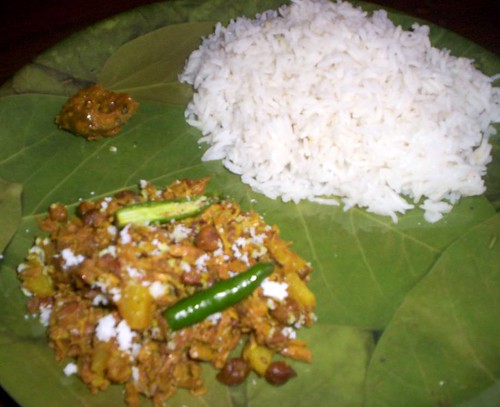Supriya Moitro is a girl born in a well to do Bengali civil servant family in Gorakhpur in 1935. She grows up in Moradabad and then goes to college in Allahabad. Against mild parental unease she then moves to Delhi to study for her MA in Hindi. Their unease is partly because of the daughter leaving home and partly that she should have chosen to study Hindi, a language generally looked down upon by the Bengali educated classes. From there Supriya moves to Aligarh where she joins as a lecturer in Hindi and where the first bend in the river occurs. Supriya falls in love with Ashok Dixit, a colleague and a non Bengali. Her parents come rushing down mortified at the thought of their daughter’s cross cultural marriage but return with a reluctant blessing.
Shortly after they get married, they move to the United Sates and effectively settle down there, though they will never admit that truth to themselves. Their only son Subodh knows no other home but the US and on their increasingly infrequent visits to Kolkata, he is distinctly uncomfortable. Not that Supriya herself is very comfortable. Each visit to Kolkata finds her retired parents, older, greyer and frailer and less able to cope for themselves. Though Supriya has a sister and other family, each visit leaves her groping with guilt about the choices she and her husband have made.
Time goes on, Subodh finishes high school and goes on to University. On one of his phone calls, he announces that he is bringing his fiancée Janet home (Oh mom, we met at grad school!). Supriya and her husband grapple with the same perplexity and unease they had gifted their parents all those years ago. Supriya at fifty is the semi autobiographical reminiscence of Prasenjit Gupta masking as a short story through the persona of Supriya looking back on her life on her fiftieth birthday. Gupta is a Delhi University graduate now living and writing from Iowa. Through the character of Supriya, he asks many questions about identity that continually confronts people who have left their roots behind and attempts some answers.
The results for third culture people are mixed. As Supriya would recall, as a Bengali brought up in UP and later settled in the US, she was well versed in three languages: Bengali, Hindi and English: she was as comfortable reading Tagore as with Premchand or later Shakespeare or Wilt Whitman. Quite an accomplishment considering most of her erudite friends and those of her husband knew one language only – English and nothing more. It is possible for her to be equally at home in different parts of the globe without any discomfort ; in her campus apartment in the American university as in the gullys of Uttar Pradesh or the decaying bungalow of her father in Kolkata and that was more than could be said of her son, who had never been to the small towns of UP and found even a week in his grand parent’s house too suffocating.

Yet Supriya realized, she truly fitted nowhere. She lived in the US and yet she was not quite American. In the early years, her husband had encouraged her to switch from saree to skirt but she had demurred. She spoke English fluently and yet taught Hindi in the local university and cooked Bengali food like Doi Mach or mocha ghonto at home. She and her husband had so wanted to find a nice Bengali girl for their son before he surprised them so. Christmas meant nothing to her and yet she felt so nostalgic at the time of Pujo, the Bengali festival corresponding to Dusshera when the whole of Kolkata would dance with delight.

There is a certain intangible part of humanity that is associated with one’s own soil, culture and norms that is irretrievably lost as one moves to be a citizen of the world from being the native of a town. The process is enriching, yet the loss of what might have been, the friendships that might have been cultivated that have been lost, the bonds that have shrunk because distance and geography played their part, the opportunities that have been gained and the opportunities that have been lost all come together in one giddy cocktail. As Supriya would put it “ …her experiences, her culture, her traditions have dissipated themselves in three different ponds, whereas if all her life had been spent in one language, think how large a lake it would be, how deep, how profound ,with all the consecrated wisdom of her ancestors…”.
On the whole, life has been good to her. She has had a good husband, a good son and is on her way to have a good daughter in law for after the initial misgivings, they have grown to be fond of the girl their son would marry and who has gone to great length to accommodate and adjust to her fiancée’s parents. But in reverse, she has been away in the pivotal moments of her family’s happenings in Kolkata, there is a very obvious disconnect that she experiences as soon as she lands in Kolkata. People have married, have had children, the children have in turn married, the older uncles and aunts whom she knew and loved have gradually passed on and to the new generation, she is just another aunty from far away who comes now and then but will never be in any sense ever a part of their lives.
So much has been gained because of the choices that she has made and yet so much has also been irretrievably lost that Supriya at fifty. Half a century into her life she can no longer draw any conclusions. She decides that she will live that for posterity to judge and hopes that she will not be found wanting.


No comments:
Post a Comment